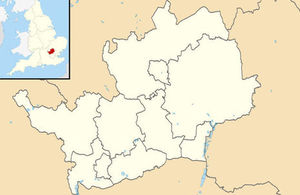Troubled families: Hertfordshire
Progress in Hertfordshire helping troubled families turn their lives around.

The family
Mum and partner live in a housing association property with 2 teenage boys. Mum also has 2 daughters who do not live in the family home who both have children themselves.
The situation
The family had a history of involvement with social services. Both boys had at some point been on the Child Protection Register and spent periods of time in care. The children also had a history of problems at school. The daughters failed to finish secondary school, the eldest son was not attending school regularly and his younger brother was regularly missing school on Mondays. Mum had been prosecuted by the local authority because of their poor school attendance. The eldest son was involved in anti-social behaviour, and the family was at risk of eviction due to his behaviour. Mum also had a number of debts and was struggling to meet the household bills. As she had a part time job, the children were not entitled to free school meals and money was very tight.
Work with the family and results
Initially the boys were reluctant to work with the family intervention worker as there had been a number of services in and out of their lives over the years. In the beginning, the eldest son refused to meet the worker, but she didn’t give up trying to get him to talk. He eventually opened up and indicated that he wanted to join the army after school. The intervention worker helped him with his application and took him to an interview at the local Army Careers office and to talk to an Job Centre Plus adviser. He became quite demoralised when he realised how difficult it was to find a job and that seemed to act as a wake up call. He began to trust her and that meant she was able to challenge him about his behaviour. She got him to see that his not attending school meant his mum would be fined and they could be evicted because of his anti-social behaviour. Because of her support, he was eventually successful in getting an apprenticeship.
The family worker also ensured the youngest boy got to school every Monday morning and it became clear that he often didn’t have enough money for lunch. Mum was helped to arrange for money for his school lunch so he always had enough for something to eat.
Since she started work with the family, the youngest boy’s attendance has gone up to 95% and the eldest has not committed any crime or anti-social behaviour since he started his apprenticeship.
Progress turning troubled families’ lives around in Hertfordshire
The chart below shows progress made in Hertfordshire as of March 2014.
| Total number of families | 1350 |
| Number of families identified as at end of March 2014 | 1350 |
| Number of families worked with as at end of March 2014 | 1128 |
| Families turned around as at end of February 2014 | 502 |